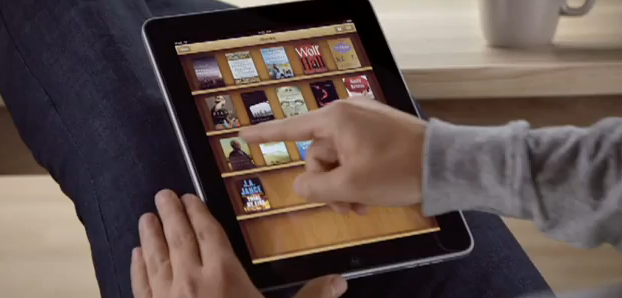Coca-Cola tops Interbrand’s 2010 Best Global Brands study, followed by IBM and Microsoft
 Interbrand has announced the 2010 Best Global Brands report with Coca-Cola topping the list for the eleventh year, HP (#10) entering the top 10 for the first time and Google (#4) seeing a 36% increase in value over last year, bringing the brand closer than ever to rival Microsoft (#3).
Interbrand has announced the 2010 Best Global Brands report with Coca-Cola topping the list for the eleventh year, HP (#10) entering the top 10 for the first time and Google (#4) seeing a 36% increase in value over last year, bringing the brand closer than ever to rival Microsoft (#3).
Three key aspects contribute to a brand’s value: the financialperformance of the branded products or services, the role of brand inthe purchase decision process and the strength of the brand to continueto secure earnings for the company.
CLICK HERE FOR THE TOP 100 BRANDS
 “Interbrand has been studying the performance of brands for over adecade and the Best Global Brands report is really a reflection of howconsumers are behaving, what brands they buy and what brands theytrust. The increasing complexities of the global economy reinforce theimportance of protecting and growing a brand. It is a company’s mostvaluable asset but it is clear that today’s brands cannot hide anythingfrom consumers – brands must say, do and be everything the brand has bebuilt to represent,” said Damian Borchok, CEO, Interbrand Australia.
“Interbrand has been studying the performance of brands for over adecade and the Best Global Brands report is really a reflection of howconsumers are behaving, what brands they buy and what brands theytrust. The increasing complexities of the global economy reinforce theimportance of protecting and growing a brand. It is a company’s mostvaluable asset but it is clear that today’s brands cannot hide anythingfrom consumers – brands must say, do and be everything the brand has bebuilt to represent,” said Damian Borchok, CEO, Interbrand Australia.
A number of prominent brands faced extraordinary crisis in 2010 resulting in stalled growth, value loss and in the case of BP, failure to make the 2010 ranking. BP’s environmental disaster and inability to make good on its brand promise of “Beyond Petroleum” led to it falling off of the list and helped competitor Shell emerge as an industry leader, now ranked number 81, up from number 92 in 2009.
Although the Toyota (#11) recall caused the brand to lose -16% of its brand value, its long-standing reputation for reliability, efficiency and innovation helped it weather the crisis better than expected. Goldman Sachs (#37) was once the envy of Wall Street, but now faces the dichotomy of strong economic results and an angry public that will continue to lash out until the company begins to demonstrate that it is making sincere efforts to better align its ethics with its brand.
Technology brands continue to lead the pack, with IBM (#2), Microsoft (#3), Google (#4), Intel (#7), and HP (#10) earning top rankings. Apple (#17) increased brand value 37% through carefully controlled messaging and an endless wave of buzz surrounding new product launches. Despite a challenging year, HP made smart additions to its product portfolio and swiftly expanded the HP brand to protect its ranking on the list. With 32% brand value growth, BlackBerry (#54) remains the most popular smartphone for business users, despite pressure from Apple as it edges into the corporate world.
During a difficult year for the auto industry, Mercedes Benz (#12) and BMW (#15) were able to sustain and build their value through innovative design and a focus on delivering premium value vehicles with luxury features. Using customer feedback, largely drawn from YouTube, Flickr, Twitter and Facebook to launch the 2009 Fiesta, Ford (#50) stands out as one of the best example of how to use social media. Award-winning products like the Q5 and rich heritage help Audi (#63) lead industry growth this year with a 9% increase in its brand value.
Despite the economic downturn, luxury brands Cartier (#77), Armani (#95), Louis Vuitton (#16), Gucci (#44), Tiffany & Co (#76) and Hermes (#69) all saw the value of their brands increase in 2010 by continuing to invest in their heritage and legendary status. Outstanding customer service and a focus on unique in-store and online experiences allowed them to stay strong, even while consumers cut back spending.
In the financial sector, legacy brands Citi (#40) and UBS (#86) lost double-digits in brand value, while Santander (#68), Barclays (#74) and Credit Suisse (#80) made their debut on the list for the first time. Their ability to stay true to brand promises in unsure times, and avoidance of the subprime mortgage crisis, helped them stay the course.

1 Comment
Congrats Dom
Love Scotty